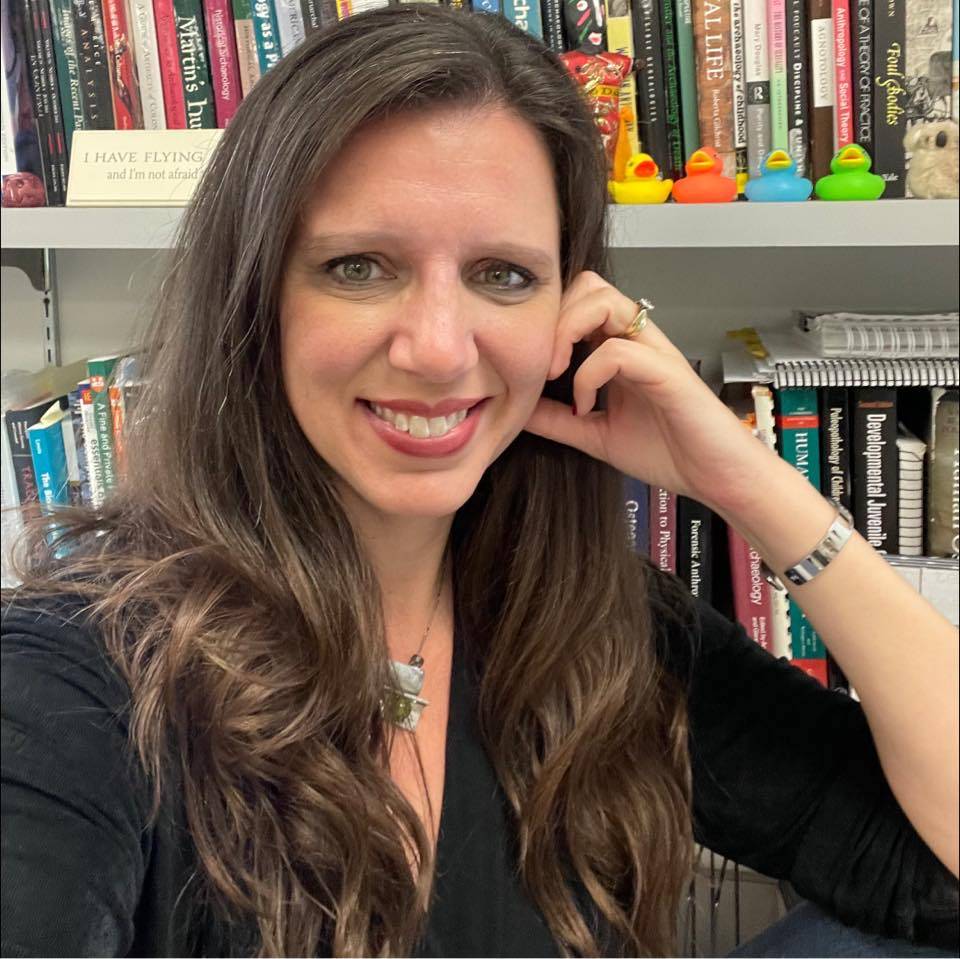
Meredith A. B. Ellis, Ph.D.
Office: SO185, Telephone: 561-297-4768, Email: ellism@fau.edu
Associate Professor
Faculty Affiliate, Peace, Justice, and Human Rights Initiative
Faculty Affiliate, Women, Gender, and Sexuality Studies
PhD, Anthropology, with Distinction, Syracuse University, 2014, Syracuse University All-University Doctoral Prize, 2015
MA, Anthropology, Syracuse University, 2011
MA, English, University of Rochester, 2005
BA, Anthropology and English, William Smith College, 2004
Summa Cum Laude with Honors in Anthropology, Phi Beta Kappa.
Research Interests: Social Bioarchaeology, Bioarchaeology of Childhood, Historical Bioarchaeology, 19th Century United States
My research focuses on human skeletal remains from archaeological sites. Specifically, I focus on historical sites, social theory and bioarchaeology, and on the remains of children (subadults). My research asks questions about how people lived in the past, and what their bodies can tell us about their daily lives and about life in a family and a community. I am interested in the intersection of the social and the biological, and how those two come together in the human skeletal system.
My work draws on skeletal analysis, archival research, and historical archaeology to tell a story about a life in the past. I am particularly interested in nutrition and disease, and how evidence for illnesses and for dietary patterns in skeletal remains can tell us about social relationships, environmental conditions, and social norms in a time and place. Thus far my research has focused on sites in the 19th century United States, including the subadults from the abolitionist Spring Street Presbyterian Church in New York City, and trauma and starvation processes from the Donner Party camp in California and from the China Gulch Chinese mining camp in Montana. I am currently working on a NAGPRA compliance project, as well as a project examining remains from the 1928 Hurricane in Belle Glade, Florida.
By understanding life histories from skeletal remains, and by asking broad anthropological questions about life in the past, my work contributes to interdisciplinary projects that span biological anthropology, archaeology, and history.
Books: